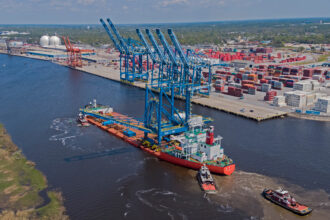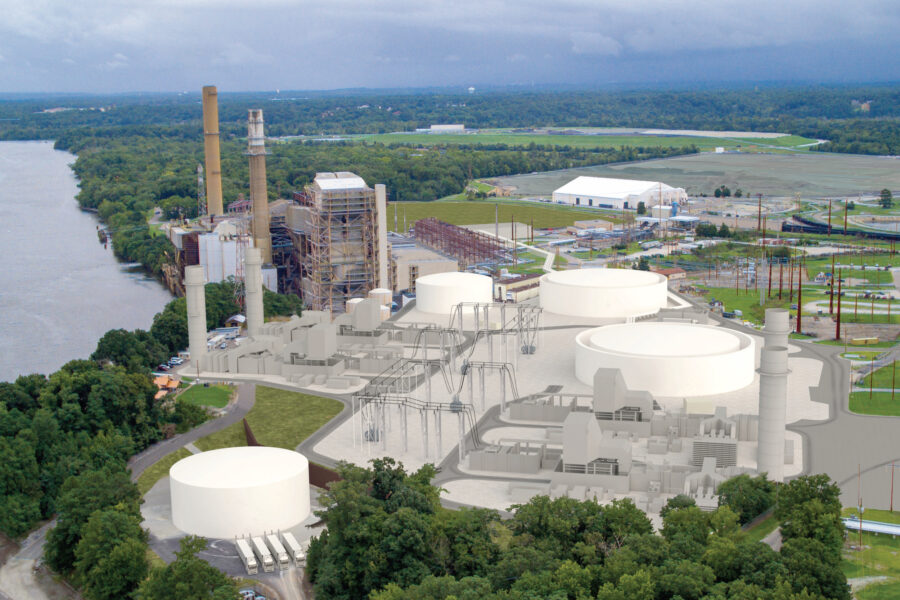The developers of a proposed plastics manufacturing plant in Ohio on Friday indefinitely delayed a final decision on whether to proceed, citing economic uncertainties around the coronavirus pandemic.
Their announcement was a blow to the Trump administration and local economic development officials, who envision a petrochemical hub along the Ohio River in Ohio, Pennsylvania and West Virginia.
Environmental activists have opposed what they say would be heavily polluting installations and say bringing the petrochemical industry to this part of Appalachia is the wrong move for a region befouled for years by coal and steel.
Thailand’s PTT Global Chemical America and South Korea’s Daelim Industrial have been planning major investments in the $5.7 billion plant, 60 miles southwest of Pittsburgh, for several years.
On the site of a former coal-fired power plant, the facility would have turned abundant ethane from fracking in the Marcellus and Utica shale regions into ethylene and polyethylene, which are basic building blocks for all sorts of plastic products.
The partnership had promised a final investment decision by summer, but announced the delay in a statement on its website.
“Due to circumstances beyond our control related to the pandemic, we are unable to promise a firm timeline for a final investment decision,” the companies said. “We pledge that we will do everything within our control to make an announcement as soon as we possibly can with the goal of bringing jobs and prosperity to the Ohio Valley.”
In March, financial analysts with IHS Markit, a global information and data company, and the Institute for Energy Economics and Financial Analysis (IEEFA), a nonprofit think tank, agreed the project was in trouble even before the coronavirus began to shrink the global economy. A global backlash against plastics, low prices and an oversupply of polyethylene, were all signs of troubling economic headwinds before Covid-19 sent world oil prices tumbling, disrupting the petrochemicals industry.
JobsOhio, the state’s private economic development corporation, has invested nearly $70 million in the project, including for site cleanup and preparation, saying thousands of jobs were in the offing. A JobsOhio spokesman declined to comment Friday.
“It’s good news,” said project opponent Bev Reed, a community organizer with Concerned Ohio River Residents and the Buckeye Environmental Network. The delay, she said, “gives us more time to educate and organize and it gives us an opening to create the economy we want.”
About This Story
Perhaps you noticed: This story, like all the news we publish, is free to read. That’s because Inside Climate News is a 501c3 nonprofit organization. We do not charge a subscription fee, lock our news behind a paywall, or clutter our website with ads. We make our news on climate and the environment freely available to you and anyone who wants it.
That’s not all. We also share our news for free with scores of other media organizations around the country. Many of them can’t afford to do environmental journalism of their own. We’ve built bureaus from coast to coast to report local stories, collaborate with local newsrooms and co-publish articles so that this vital work is shared as widely as possible.
Two of us launched ICN in 2007. Six years later we earned a Pulitzer Prize for National Reporting, and now we run the oldest and largest dedicated climate newsroom in the nation. We tell the story in all its complexity. We hold polluters accountable. We expose environmental injustice. We debunk misinformation. We scrutinize solutions and inspire action.
Donations from readers like you fund every aspect of what we do. If you don’t already, will you support our ongoing work, our reporting on the biggest crisis facing our planet, and help us reach even more readers in more places?
Please take a moment to make a tax-deductible donation. Every one of them makes a difference.
Thank you,














